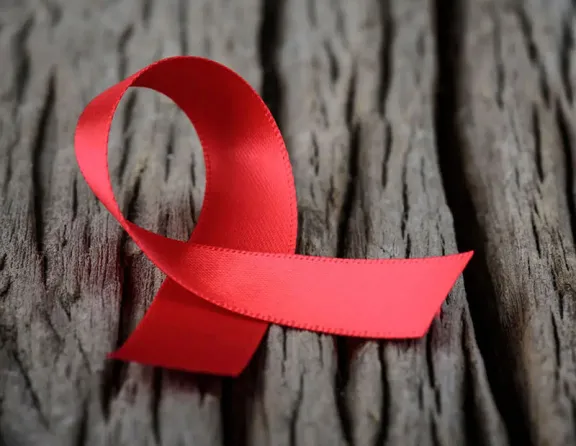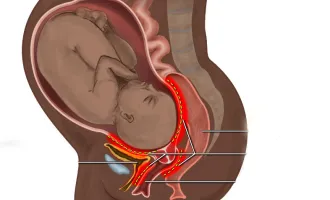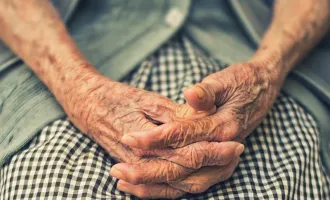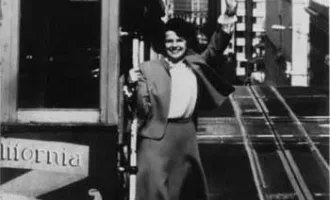
This Date in UCSF History: UCSF Observes World AIDS Day
Originally published on December 1, 1988.
“Sometimes people just want to talk and it’s our policy never to hang up,” said Daniel Latham, a research associate in UCSFs Cardiovascular Research Institute, talking about his experiences as a volunteer on the San Francisco AIDS Foundation hotline. “I have friends who have been ill, so I’ve been touched personally by AIDS.”
Latham was handing out AlDS prevention literature in the Medical Sciences lobby on Dec. 1, World AIDS Day sponsored by the World Health Organization (WHO) to increase public consciousness of the deadly epidemic. WHO expected AIDS Day to be marked in about 100 nations.
Latham is one of many UCSF employees deployed to get the word out to the public during a special campus AIDS Awareness Week that runs through Dec. 9.
“Increased awareness and education are powerful tools in understanding and dealing with AIDS,” Chancellor Julius Krevans said in announcing the series of events.
He spoke to the heart of Latham’s interest. “I feel that the epidemic is going to be stopped through education,” he said. “I knew the hotline would be a good way to get information out, and I wanted to help in some way.”
Latham volunteered at the AIDS Foundation for the past two years, and was trained in the arts of listening, and then clearly and sensitively communicating information on a scary topic.
He was also brought up to speed on an extensive and growing array of referral information on services, counseling and medical care for AIDS patients.
According to Dr. Merle Sande, chief of medicine at San Francisco General Hospital, the efforts of the AIDS hotline and a multitude of other services are finally being felt.
“We are very encouraged by the apparent reduction in transmissions of HIV [human immunodeficiency virus] among the gay male pop in San Francisco,” he told Synapse. “It really does look like education has worked.”
Scientific developments also give cause for hope, Sande added.
“We’re certainly encouraged by AZT and are looking scientific developments also give cause for hope, Sande added. “We’re certainly encouraged by AZT and are looking optimistically for new agents, perhaps the CD4 molecule or others drugs [that prevent the AIDS virus from attaching to immune system cells], to have a major impact on the disease.”
But the biggest challenges lie ahead, Sande said, offering two of the most important unanswered research questions: “Do AZT or other antiviral drugs prevent infection if given prophylactically or post exposure? And will AZT reduce the conversion from asymptomatic state to ARC and AIDS?”
And a cure for AIDS, an effective vaccine, or a drug that destroys the AIDS virus DNA after it has entered host cells is still not on the horizon, said Sande.
As part of UCSF AIDS Awareness events, portions of the Names Project AIDS Memorial Quilt are on display in the stair well near Cole Hall, in the School of Nursing lobby and the Health Sciences West third floor through Dec. 9.
San Franciscan Cleve Jones originated the quilt, a monumental effort consisting of about 9,000 distinct panels, enough to cover nearly four football fields.
Sewn by friends and family members of AIDS victims, each panel remembers a fallen loved one; each is as unique as the individual it commemorates. About 6,000 quilt panels will be displayed at the Moscone Center Dec. 14 through 18. Admission is free.



